Rwanda is a land of breathtaking scenery, friendly people, elusive mountain gorillas and – perhaps surprisingly – a big passion for bikes.
So popular is cycling there that the East African country has been chosen to host the UCI Road World Championships in 2025.
Mountain biking hasn’t gained such a strong foothold, yet – but that’s something the organisers of the Rwandan Epic stage race are hoping to help change, as the country continues to put the darkest chapter in its past behind it.
The event is the brainchild of Rwanda-based Belgian Simon De Schutter and Matthew Brokenshire, from England, who went riding there with friends and discovered great trails in an amazing landscape.
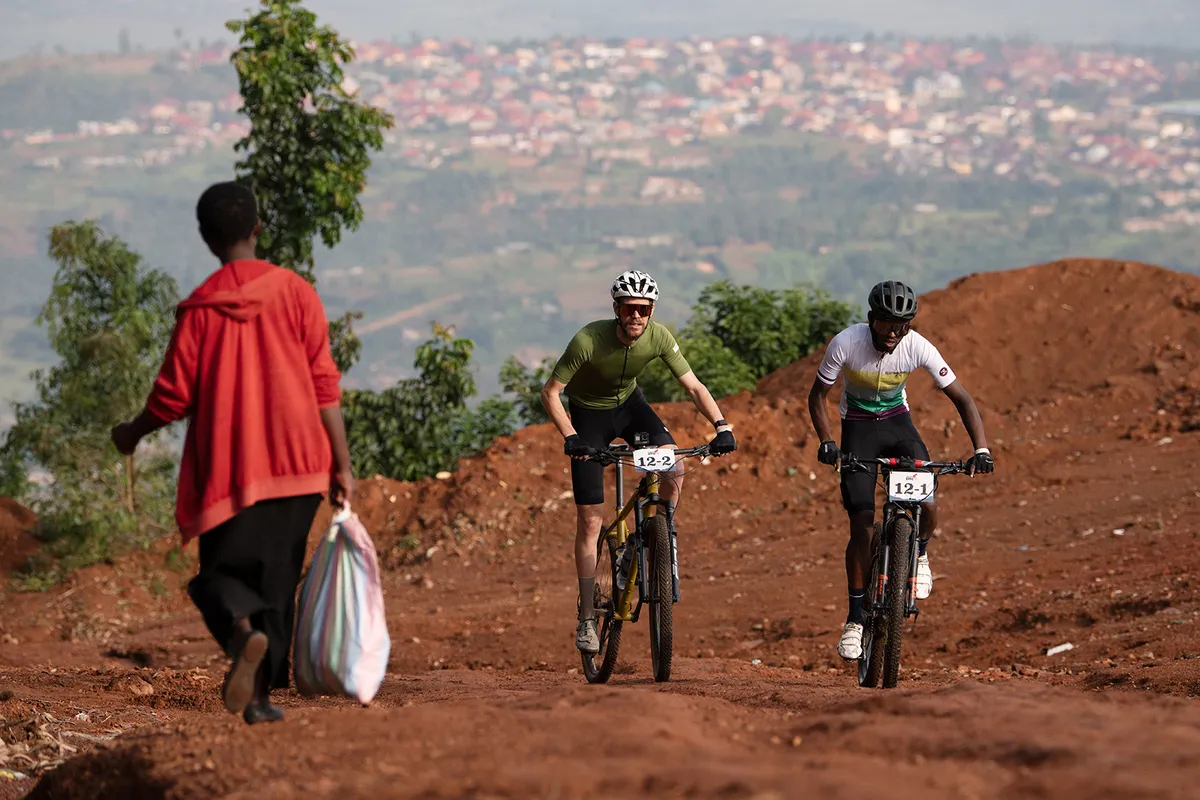
Amazed that Rwanda didn’t have any mountain bike races, they decided to organise their own.
The course was designed by another Belgian, Simon Huppertz, who coached the Rwandan MTB team at the 2016 Rio Olympics.
After the first edition in 2020 had to be scaled back, this year’s race went ahead as planned, with international riders competing alongside locals on some of the country’s most photogenic and challenging terrain.
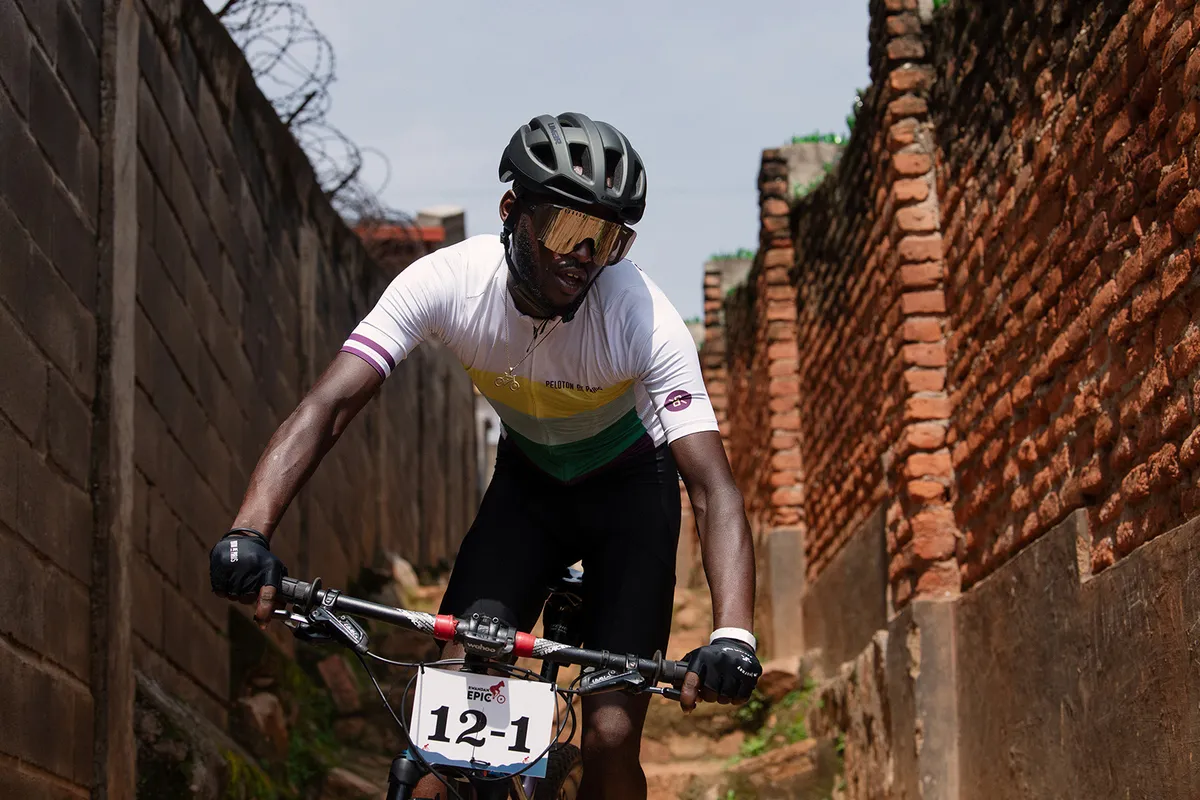
The dynamic was friendly, with riders living, riding and drinking together, and the focus was less on cut-throat competition and more on showcasing Rwanda to the world.
“We always think about the riding,” explains De Schutter. “But we also want to show what the country has to offer.” The organisers succeeded on both counts.
The race began with a prologue time trial on the slopes of Mount Kigali, on the outskirts of the Rwandan capital.
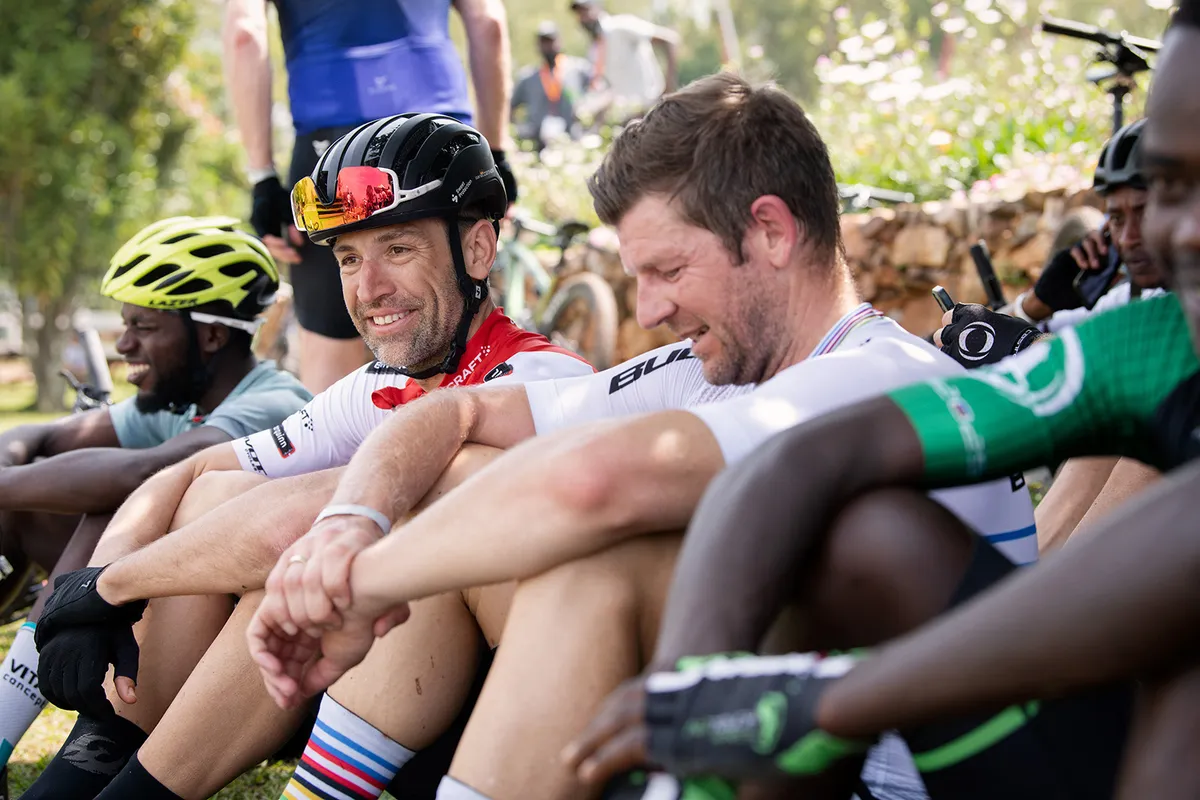
In a land known as the ‘Country of a Thousand Hills’, inevitably there was next to no flat ground – a theme that would come to define all four stages.
The racing was fast and relentless, with part of the course taking in the narrow alleys of the bustling Nyamirambo neighbourhood.
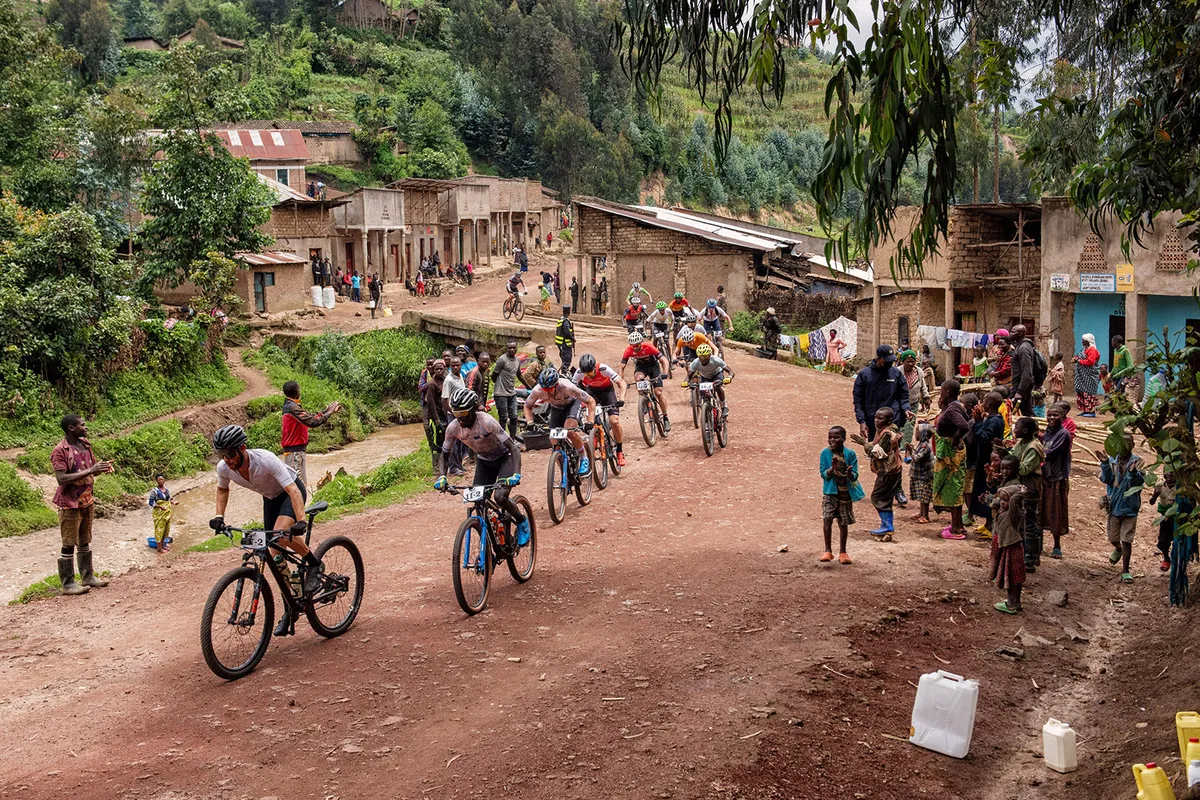
Rwandans are familiar with road cycling, but mountain biking is still embryonic.
The sight of 41 riders from 12 countries sprinting through villages, hurtling over rock gardens and weaving through farmsteads was a curiosity as well as a source of much entertainment.
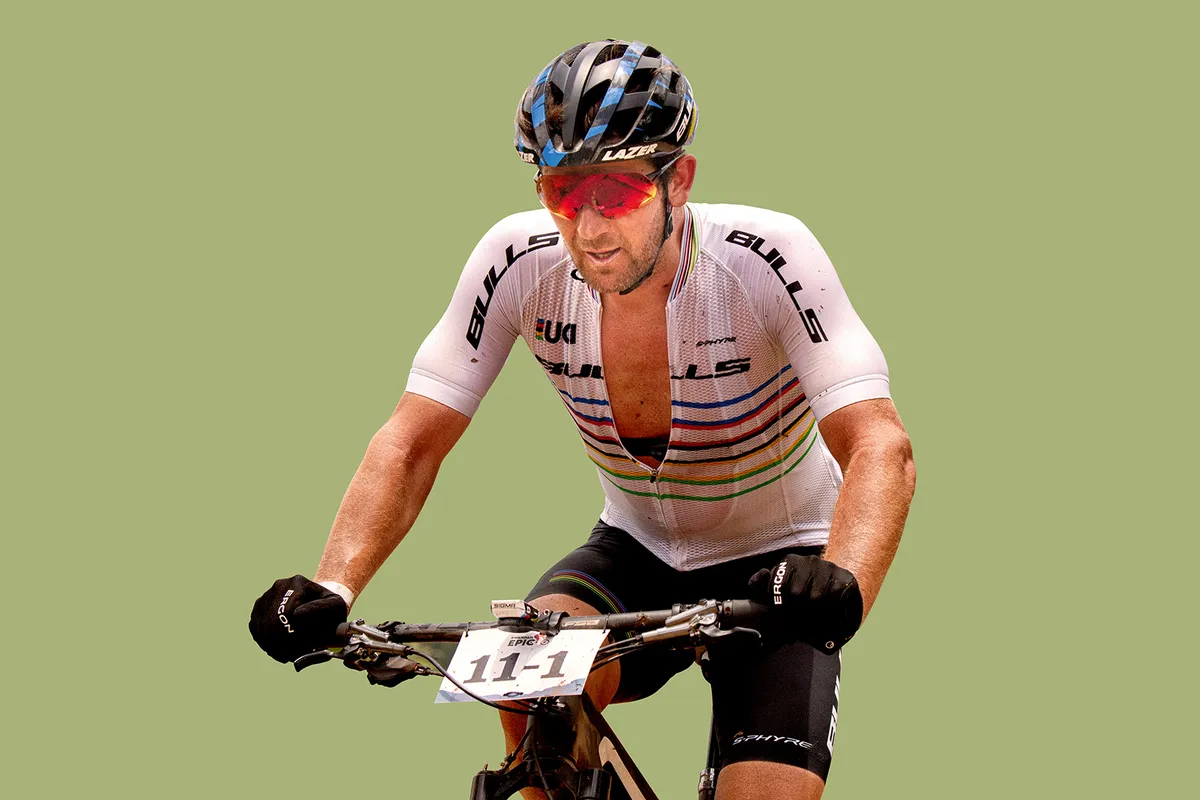
German marathon cross-country champion Karl Platt won the first stage with his team-mate Jean Eric Habimana.
They were one of several pairings that partnered a Rwandan or Kenyan rider with an international pro.
“Jean Eric is special, one of the most talented Rwandan riders,” says Karl.
“It was a good balance between us, and he learned a lot of technique. Not only Jean Eric, but the other local riders, too.”
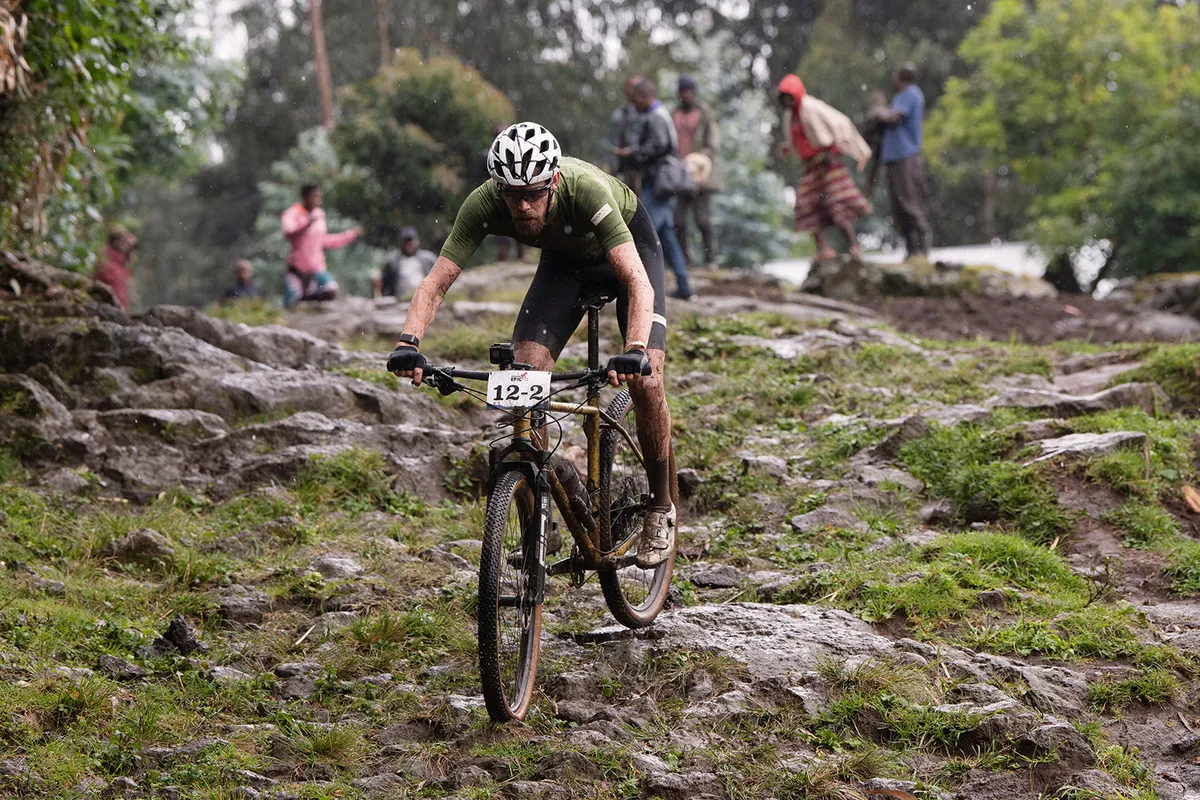
The race then headed to the north of the country for three stages. This region is one of the strongholds of cycling in Rwanda, the training ground of the country’s road team and home to the national cycling centre, but doesn’t see many mountain bikers.
“The Rwandans have little access to mountain bikes, despite having this network of amazing trails on their doorstep,” explains Britain’s Josh Ibbett, who teamed up with Rwanda’s Jean Ruberwa. Hopefully the Epic will change that.
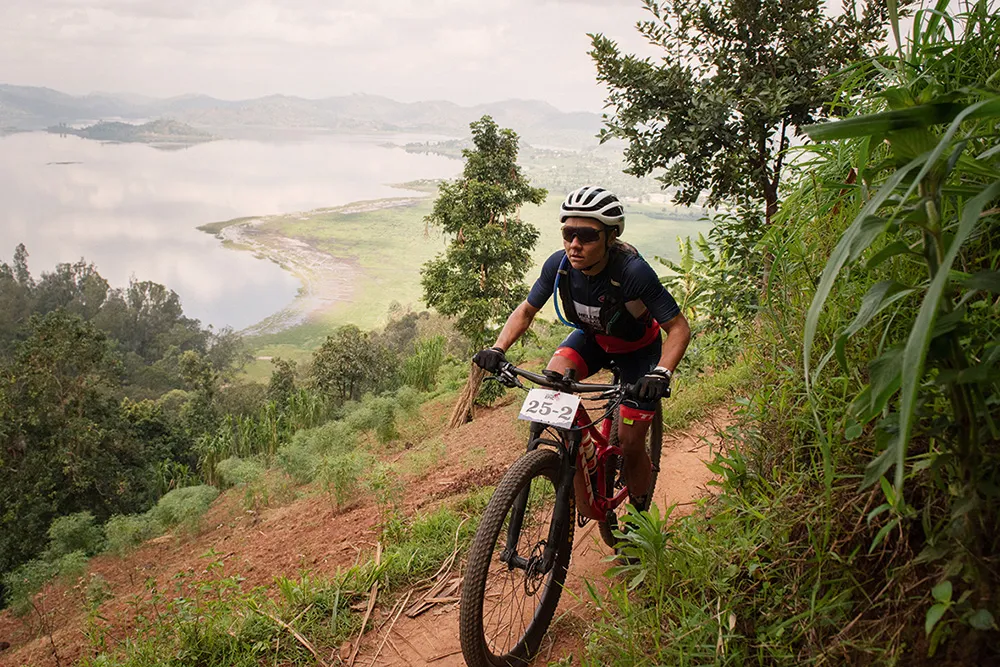
Stage two was a marathon-style 75km route with panoramic views over the ‘Twin Lakes’ of Burera and Ruhondo – although the racers didn’t have much time to admire the vistas.
Need to know: Rwanda
The Republic of Rwanda is a small landlocked country in the Great Rift Valley, bordered by Uganda, Tanzania, Burundi and the Democratic Republic of the Congo.
It hit the headlines in 1994 during a spree of ethnic violence, resulting in the deaths of up to one million people and leaving it with one of the world’s youngest populations (average age 19).
The economy – based mostly on subsistence agriculture – has since recovered and tourism continues to grow, thanks to Rwanda’s beautiful scenery and rare wildlife.
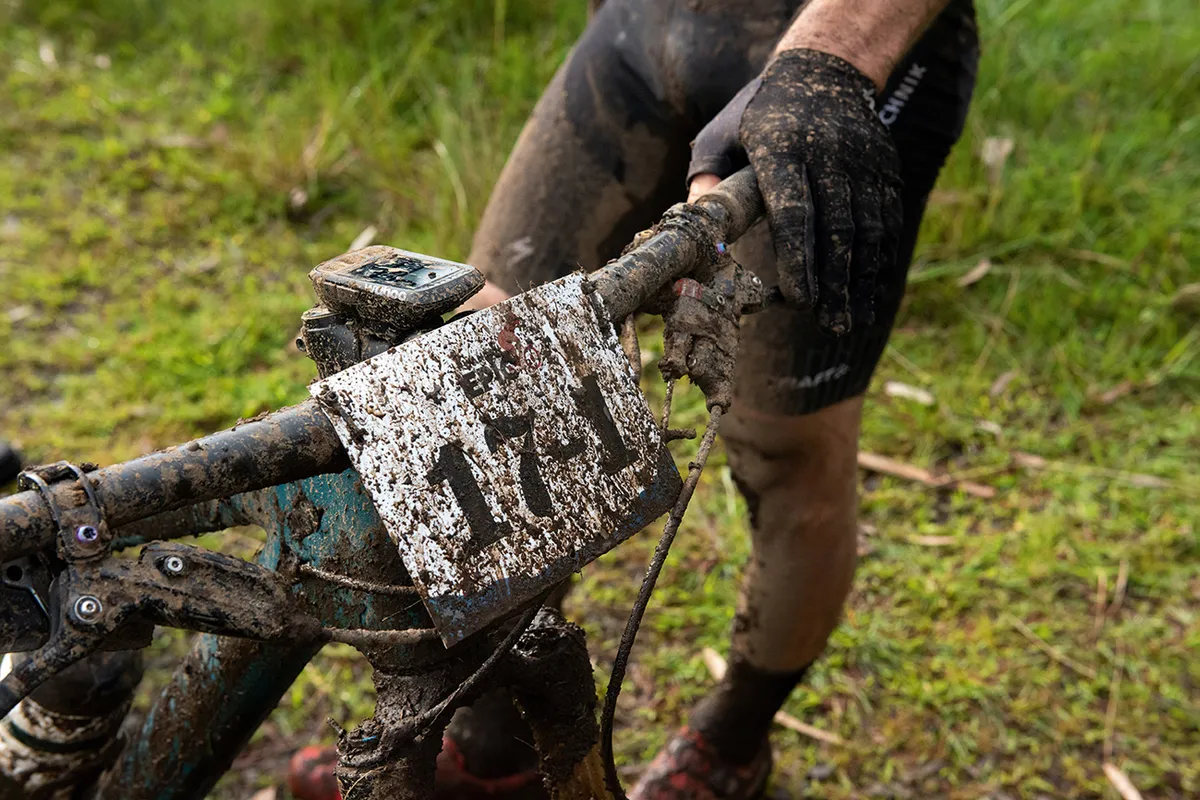
In the shadow of the Virunga Mountains, the next leg was an XCO-style circuit race with steep climbs and technical descents.
It was cut short by one of equatorial Rwanda’s frequent torrential downpours.
Josh Ibbett
UK pro rider
“I’ve been lucky enough to race my mountain bike in a number of countries across the world, but I have to say the Rwandan racing experience was one of the best.
"I was surprised to find such a great mix of technical trails, rocky descents, steep climbs and super-long, fast, flowing singletrack. It was one of the most balanced courses I’ve ridden.”
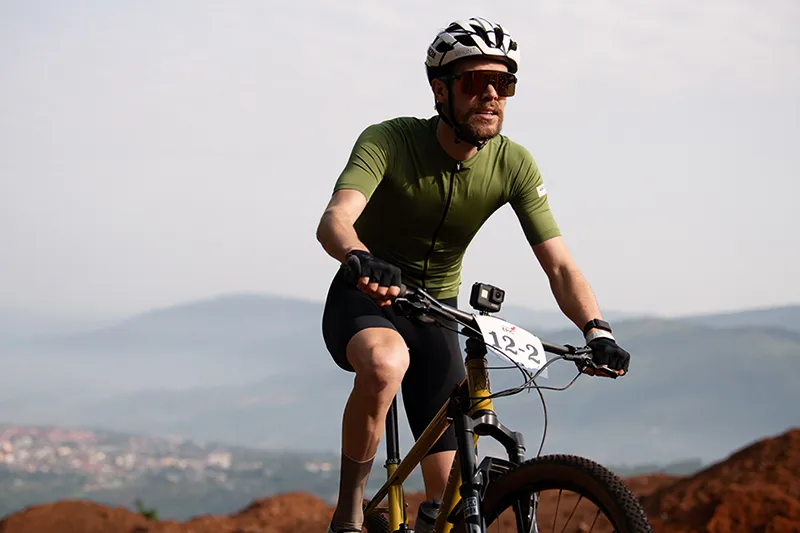
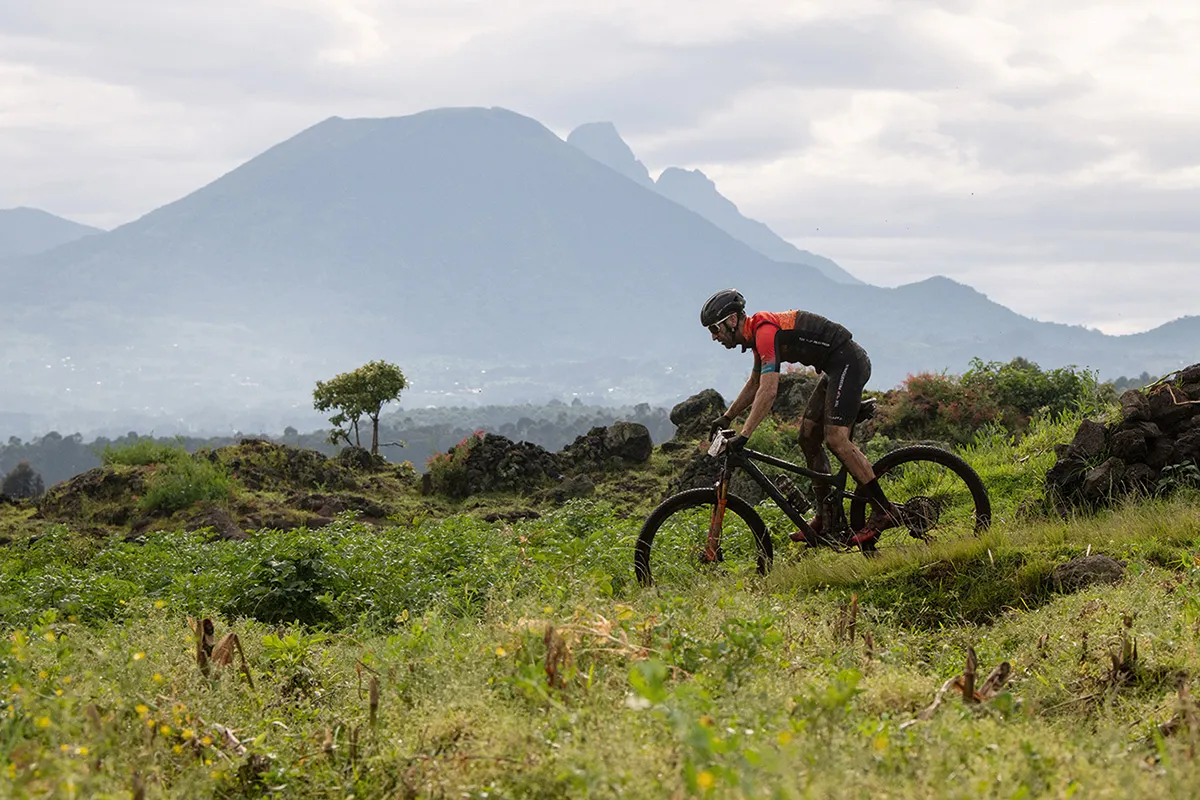
Dormant volcanoes frame the landscape in the northern district of Musanze, where riders descended a slippery rock garden on stage three.
The gathered locals erupted in frenzied approval as each picked their line and committed, with varying degrees of success.
But it was for Karl Platt that they saved their most fervent outpourings.
When the five-time Cape Epic winner exploded past as if riding on tarmac, they absolutely lost their minds!
Rwanda is one of the only places in the world where you can see mountain gorillas.
The stage-three finish line in Kinigi, in the foothills of the Volcanoes National Park, was near the site of the annual Kwita Izina ceremony, where newborn gorillas are officially given their name.
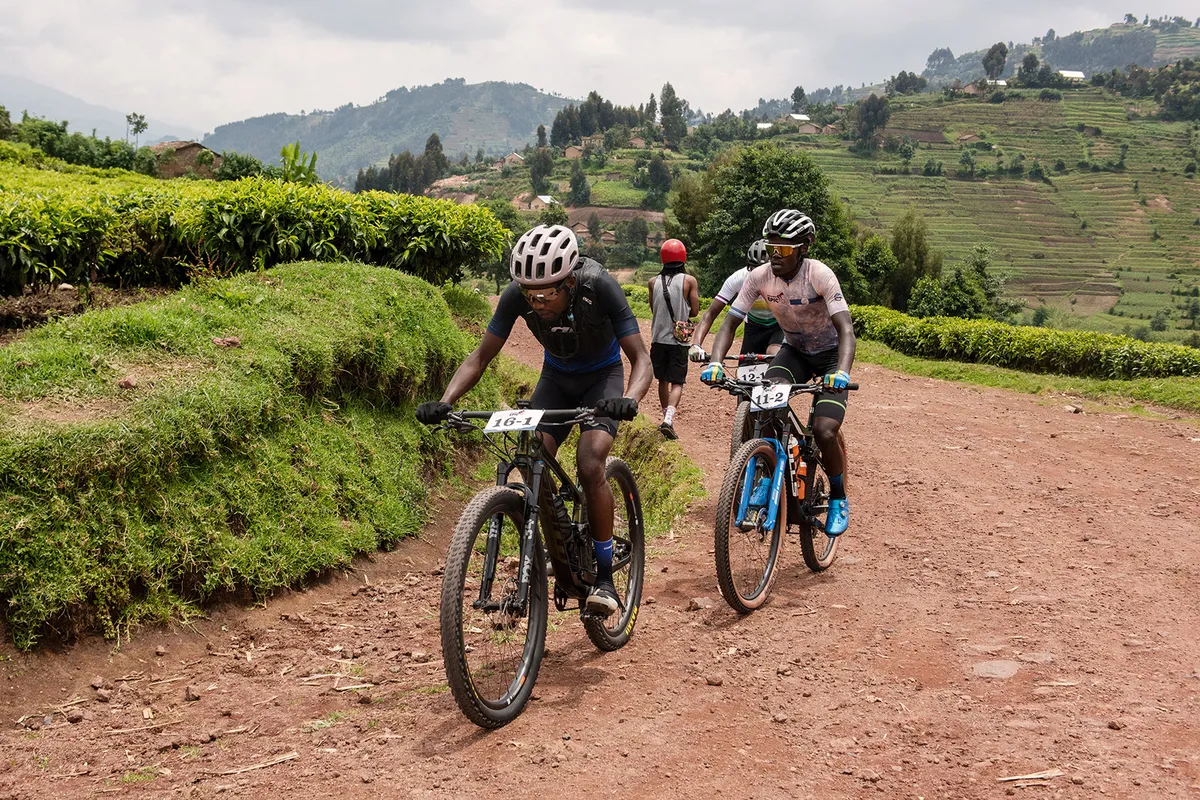
The fourth and final stage had an initial ascent on gravel tracks to 2,900m, through tea plantations and pastures filled with grazing cattle.
It all finished on the banks of Lake Kivu, a few kilometres from the border with the Democratic Republic of the Congo, a country mired in conflict.
Given Rwanda’s own troubled past, it was poignant to reflect on how far the nation has come since the 1994 genocide.
For the riders, the racing wasn’t the main focus. Instead, the event was more about hanging out with likeminded people and seeing the real Rwanda.
“Now, after experiencing it, I’d say everyone can come to Rwanda,” says Platt, who took the overall title along with Habimana.
“Come and experience the people, the landscape and the mountain biking – it’s super-easy.”